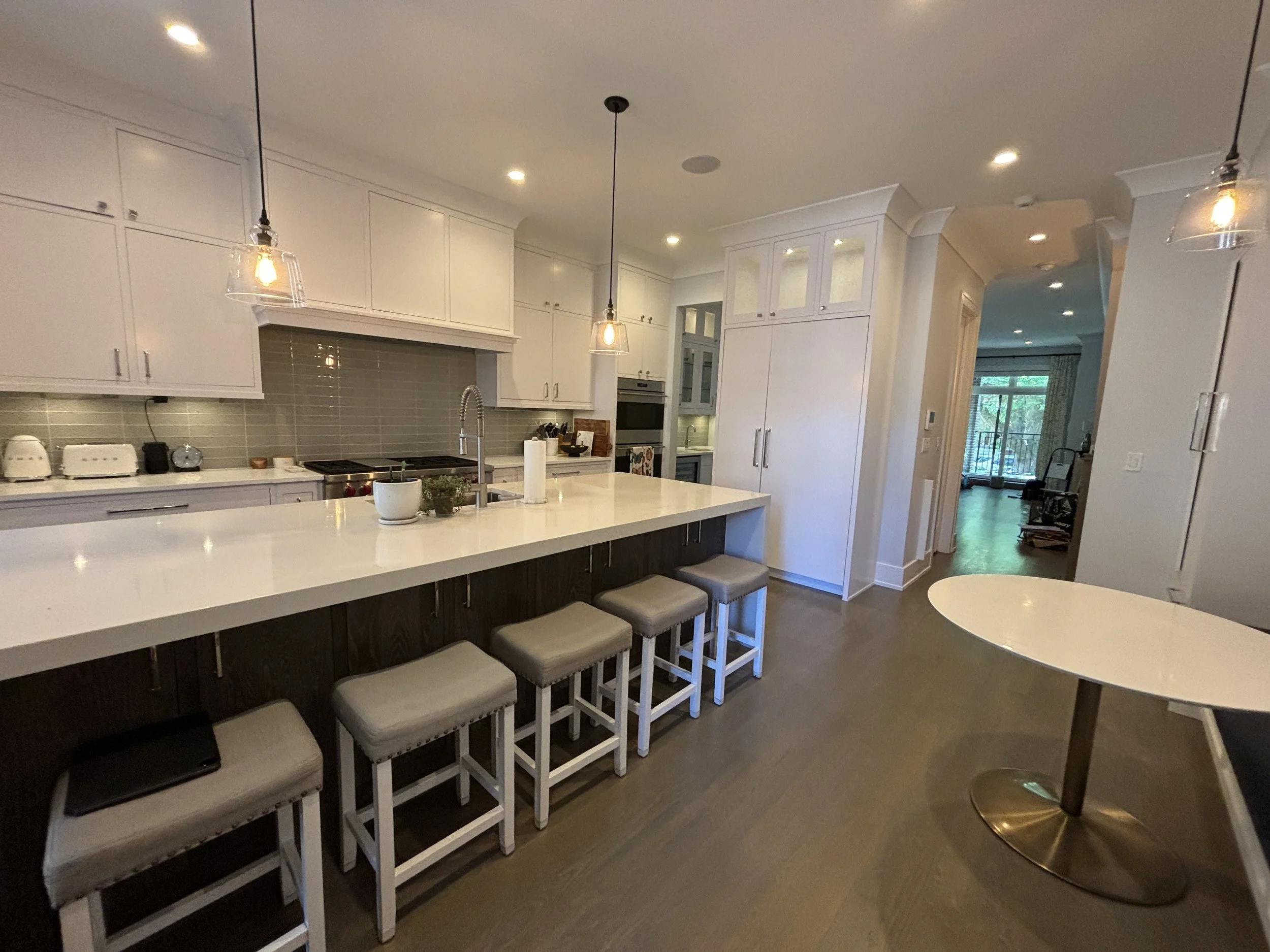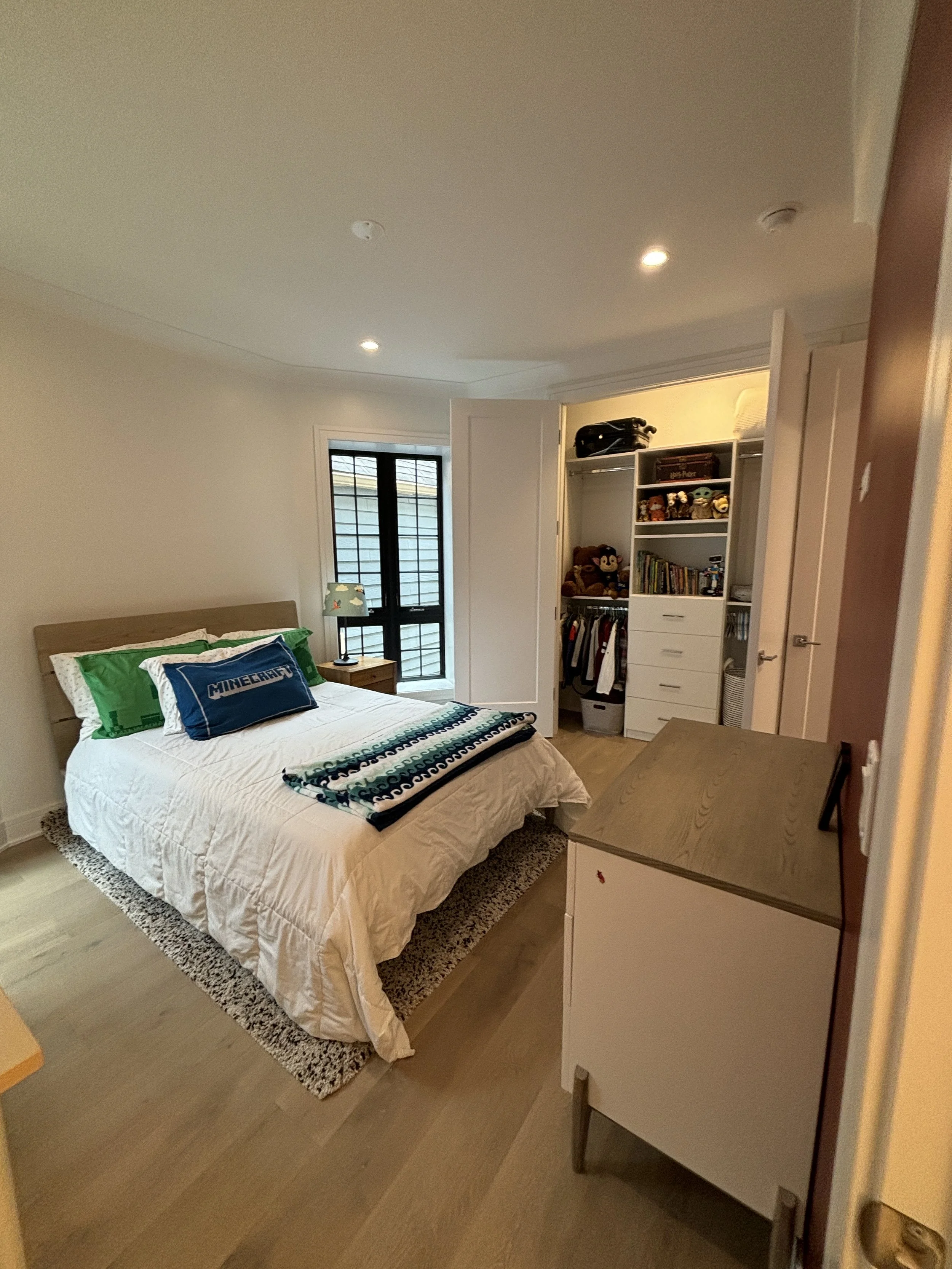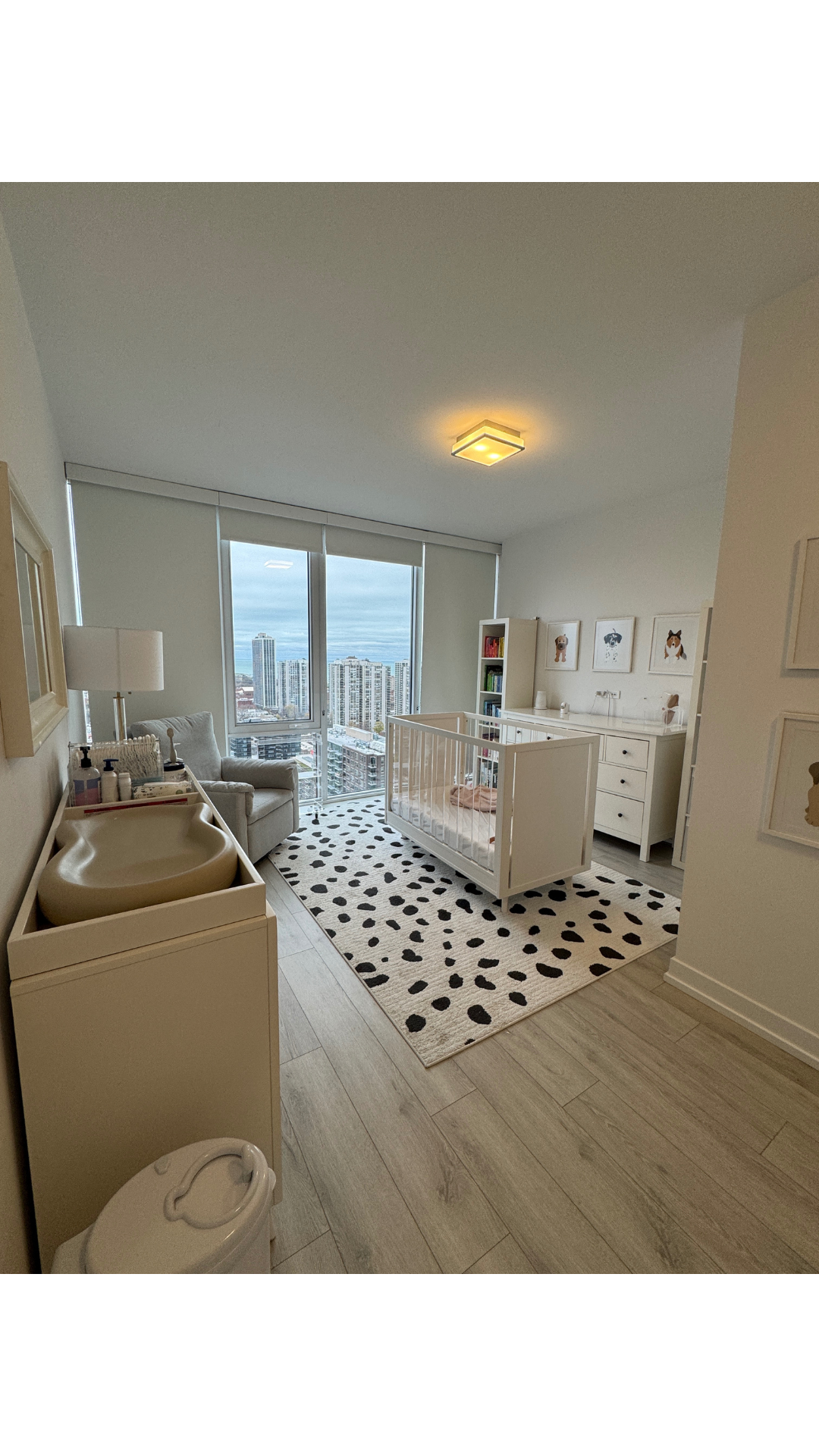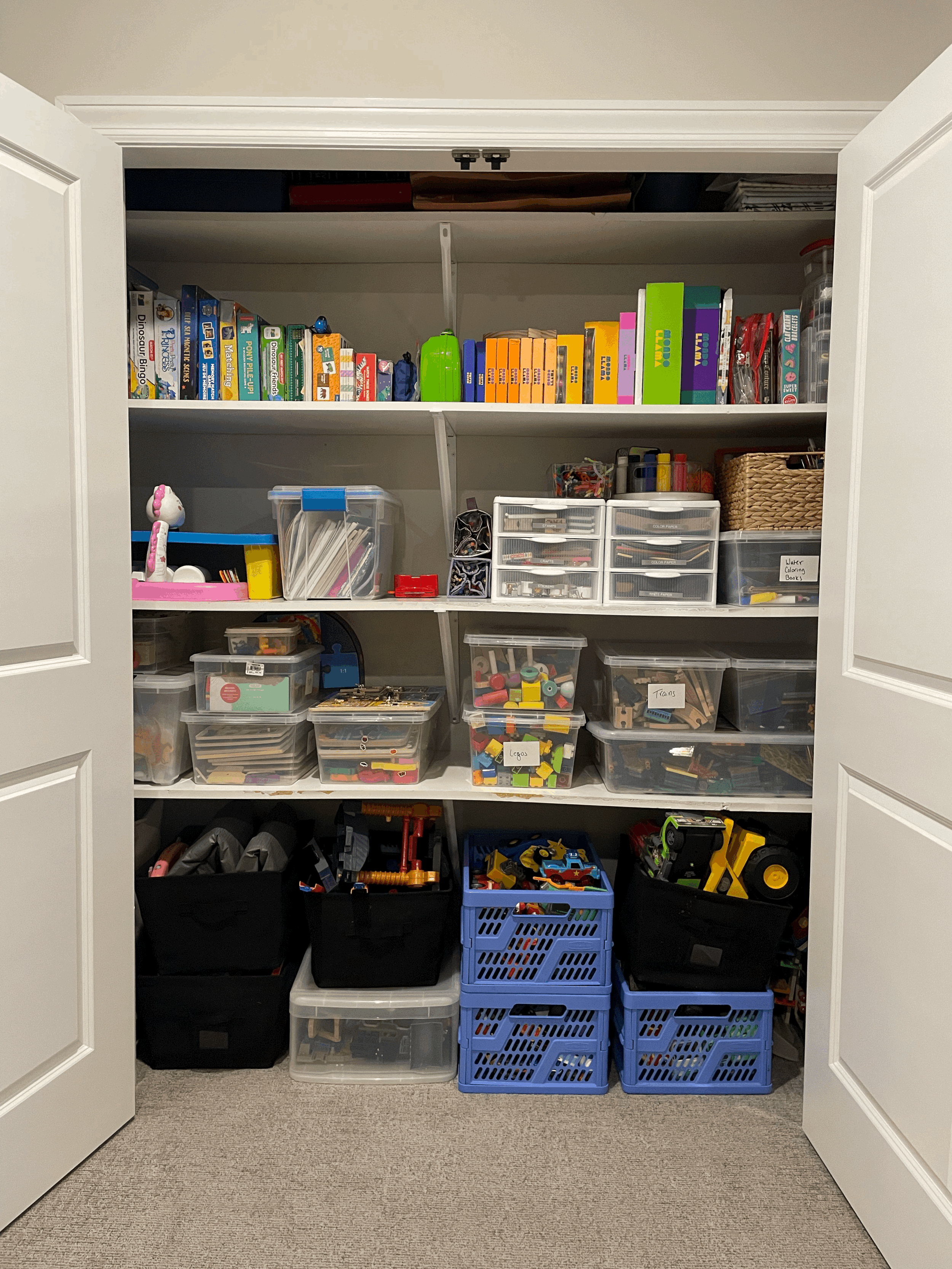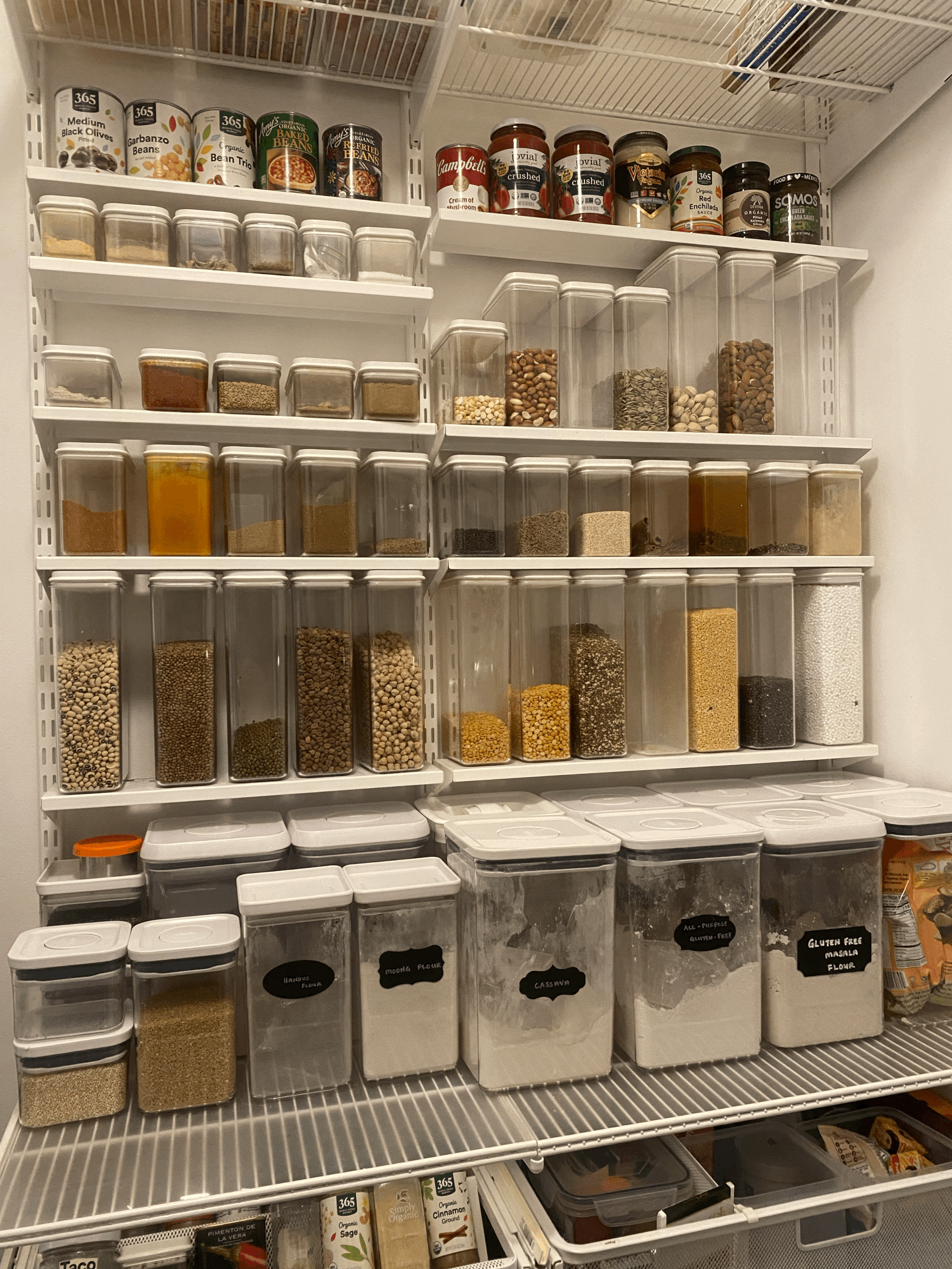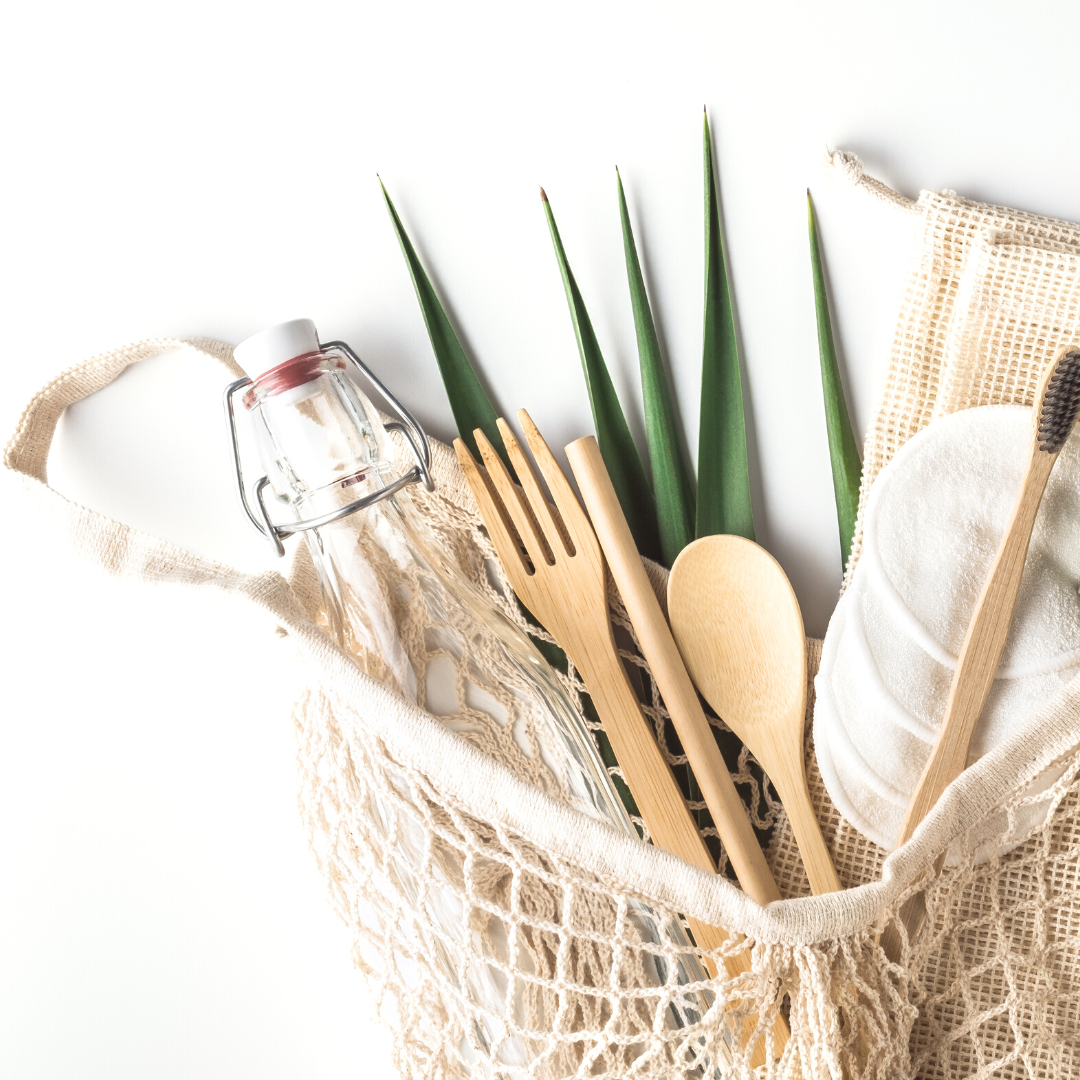How Many Toys Do Kids Really Need?
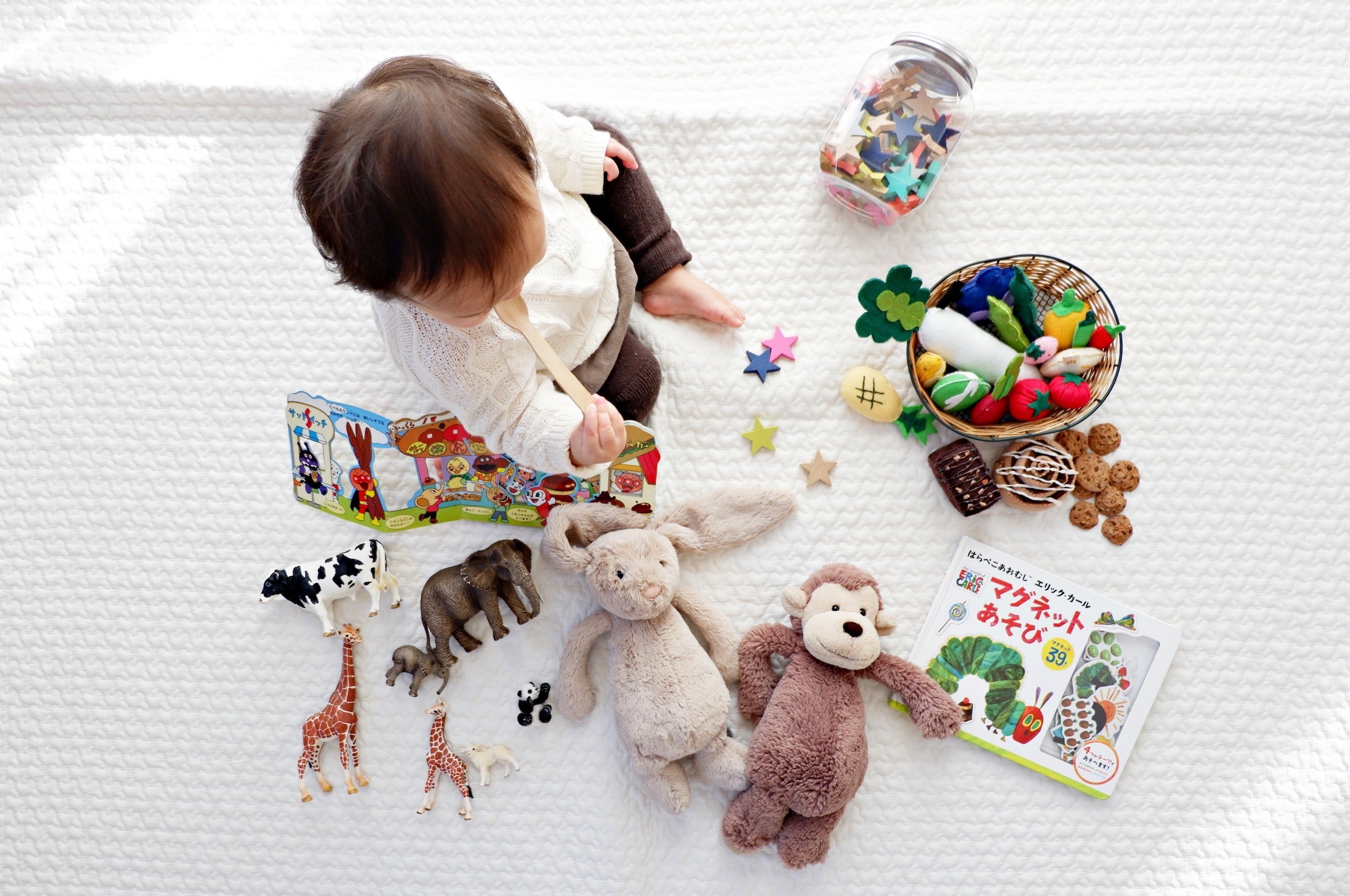
Parenting in a world full of excess often contradicts our best intentions to provide and connect with our kids.
Why? Because it’s big business and they know how to hit one of our deepest trigger points — inadequacy. They plant the seed of doubt that we’re not doing enough and the roots grow instantly. They know the pressures we face and the comparison games we play. There’s a bigger conversation to be had about aligning our values with our consumer habits, but here are some starting points to restore order.
Create organizational habits as early as possible.
Studies show that children as young as 12 months old can grasp the concept! They may not be able to sort objects, but they can begin to place toys into a single bin. Over time they will work to fine tune these skills. If we expect them to take care of their toys, put them away and part with unused items. We must model the behavior ourselves. In doing so, we teach them how to accurately assign value to their material possessions and develop gratitude.
Less is more. We’ve all seen beautiful, organized playrooms that are stocked full. However, many clients report that even though they’ve purchased the storage and categorized everything, their kid(s) still pour everything out — leaving us deflated and frustrated. Kids need to play, but play doesn’t always require toys. If we open up space and limit options, their imagination can run wild and we can keep our sanity.
Rotate toys in/out to reduce visual clutter, clean up time and over-stimulation.
Set kids up for success by providing organizational systems that are simple and flexible so they can be easily maintained. Try categorizing items into basic categories, colors, or per child and resist the urge to fill every bin. By intentionally allowing room to grow, you establish order while giving kids the opportunity to personalize their space. Include your child in the process and ask for their opinion to show you value their input.
Communicate your mission to simplify to friends and family.
Tell them they can help by limiting their gifts to experiences. Understand the initial request may be met with confusion, resistance or dismissed completely. Keep in mind, we’re all subconsciously being told that gifts convey love. This desire is magnified the further away they live. Emotion is the primary factor behind purchasing behaviors and like us, they only want the best for our children. Set your boundaries, give it time and reiterate the importance of their presence whenever possible.
Quick Tips
Establish healthy habits as early as possible
Keep organizational systems simple and allow room to grow
Promote the importance of presence over possessions to loved ones
Additional Resources:
Best Holiday Gift Guide for Kids (from Low Lift Fun)
[Image via Unsplash]
Habits are the small, often unnoticed actions that shape our days. They influence how our mornings start, how our homes function, and how much mental space we carry with us. In our work as professional organizers, we see it all the time: lasting change doesn’t come from one big organizing day—it comes from the routines that follow.
Fall is about more than pumpkins and cozy vibes, it’s a chance to reset. By storing away summer, creating functional spaces, and resetting your routines, you’ll give yourself the gift of clarity and calm before the busy holiday season begins.
Your bedroom should be more than just a place to sleep - it should be a calming retreat that restores your energy and sets the tone for your day.
Welcome to the beautifully messy season of nesting. Nesting is a powerful instinct, and it’s your mind and body’s way of preparing for this incredible transition into motherhood.
If you’re an entrepreneur or small business owner looking to streamline your operations and boost your efficiency, here are my top tips for organizing your business from the inside out.
Are you feeling overwhelmed by clutter-physically, mentally, or emotionally? Embracing minimalism can be a transformative journey, helping you clear out the unnecessary and focus on what truly matters.
As spring arrives with its promise of new beginnings, it's the perfect time to give your home a little TLC. Spring cleaning isn't just about dusting off those shelves; it's a chance to breathe new life into your living space and make it feel truly yours.
In today's competitive real estate market, first impressions are everything. As a professional organizer, we've seen firsthand how decluttering can transform a property from "lived-in" to "must-have."
By using smart kitchen organization tips, you can transform even the messiest kitchen into an efficient, stress-free environment that saves time and makes meal prep more enjoyable.
As a professional organizer, I understand that the start of a new year is the perfect time to set goals that can lead to lasting change in your home and life. Here’s how to set and achieve your goals with a clear plan and actionable steps.
As the holiday season approaches, many of us find ourselves surrounded by cherished memories in the form of physical objects. While these sentimental items hold special places in our hearts, they can also contribute to clutter and overwhelm our living spaces.
It can be tough to stay organized for busy professionals but with some simple habits and routines, you can keep things in order at work and home. Here are some easy tips to help you stay organized.
Living in an apartment can be a delightful experience, however, the challenge of limited space can sometimes feel overwhelming. Whether you’re a seasoned renter or new to urban living, these creative solutions will help you maximize your space without making permanent changes.
Basements often become catch-all zones—places where random items go to live when they don’t seem to fit anywhere else. But with a bit of creativity and a game plan, your basement can be more than just a storage cave. It can be a functional, inviting space that adds real value to your home.
A thoughtfully organized workspace can significantly boost your productivity, enhance your work-life balance, and create a more enjoyable work-from-home experience. Here are some key insights to help you create your own productive home office.
Are you feeling overwhelmed by the clutter in your home? Don't worry, you're not alone. Many of us struggle to keep our living spaces organized and free of excess stuff.
Summer break is an exciting time for kids, but it can also be a challenging period for parents trying to keep their homes organized. With children home all day, every day, clutter and chaos can quickly take over.
For many, the kitchen is the heart of the home. It's where meals are prepared, shared, and memories are made. But a disorganized kitchen can quickly zap the joy out of cooking. Imagine fumbling for ingredients, wrestling with overflowing cabinets, or battling an avalanche of mismatched pot lids. Not exactly a recipe for inspiration!
Starting a fresh chapter in a new home is an exciting milestone, but the process of packing and moving can often be overwhelming and stressful. From coordinating logistics to sorting through belongings, there is a lot to consider when planning a move.
In our fast-paced lives, we often find ourselves surrounded by physical clutter and mental noise that can weigh us down. However, embracing the practice of letting go can pave the way for a fresh start and a renewed sense of clarity and purpose.
Whether you're a crafting enthusiast, a gamer, or an avid collector, this month, let’s walk through practical steps to bring order to the chaos and make your hobby spaces a source of inspiration.
Since we are at the beginning of a fresh new year, we want to take some time to dive into a topic that might seem a bit daunting but is crucial for a stress-free life—organizing your finances.
As we look toward the new year, many of us find ourselves looking for a fresh start, aiming to declutter our spaces and minds. Setting intentions for a clutter-free environment can be transformative, ushering in a sense of clarity, productivity, and well-being.
Life can get pretty hectic, am I right? Between being a spouse, a parent, a business owner, and a friend, there's not much time left for anything else. And when life gets crazy, our living spaces often bear the brunt of it. But guess what? Keeping things tidy isn't just good for your sanity; it can help you stay organized and focused when everything else is in chaos.
Who doesn't love the thrill of taking off on an adventure? Whether it's a weekend getaway or an international expedition, travel opens up a world of experiences. But before you can jet off to paradise or explore a new city, there's one not-so-small task to tackle: packing.
As the leaves turn vibrant hues and the temperature starts to dip, it's time to tackle seasonal closet organization! Keeping your wardrobe in sync with the fall weather can be a game-changer.
Are you ready to embark on an organizing journey that not only brings order to your space but also helps the planet? If you're passionate about decluttering and sustainability, keep reading! This month we’re exploring three sustainable solutions to help you declutter your space while minimizing your impact on the environment.
Summer is here and living in a vibrant city like Chicago means there's never a dull moment when it comes to socializing. From trendy events and art shows to concerts and food festivals, the options seem endless. But how do you keep up with it all without feeling overwhelmed?
As professional organizers, we come in with a plan and take the time to really understand how to make an impact each and every time we work in a client’s home. If you are feeling overwhelmed and want to start this process on your own, here are some simple steps you can take.
You feel like you can conquer the world when you have a productive morning. But why is it so hard to actually get out of bed?

